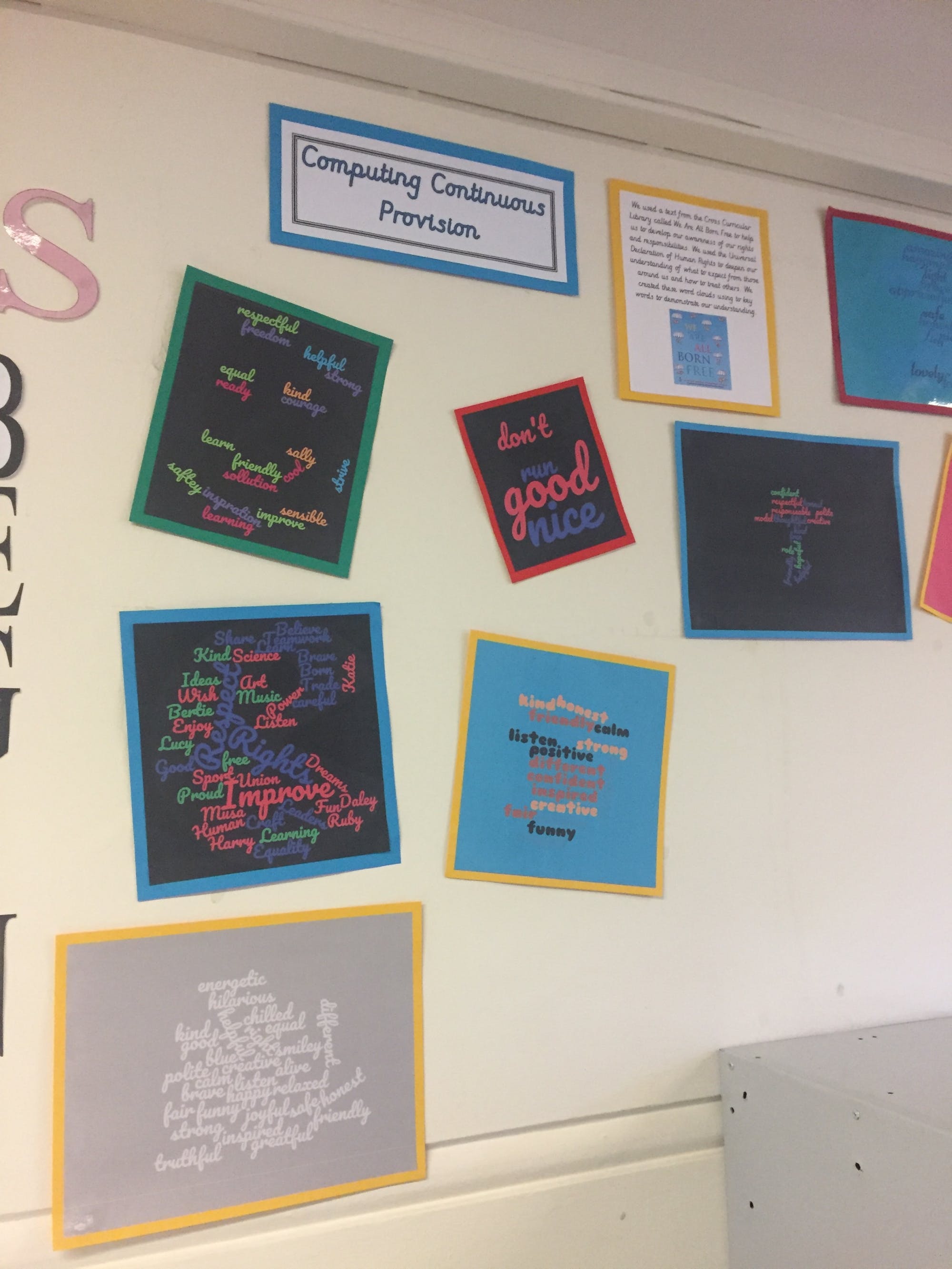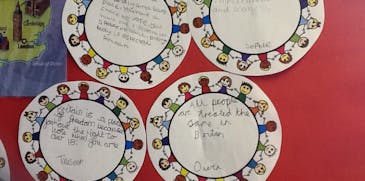Welcome to our British Values Page
Learning to read so we can read to learn and gain pleasure is at the heart of all areas of the curriculum. Early reading is therefore our first, foremost and central priority in school so all children are readers. Books are enjoyed and used across all curriculum areas as highly valued hooks, tools and a way of escaping in to other worlds, times, plac
.png?auto=compress%2Cformat&cs=strip&ixlib=php-1.1.0&s=1a3e80264018f159b4de67eae8920e2a)
.png?auto=compress%2Cformat&cs=strip&ixlib=php-1.1.0&s=1e2cff94b156e71fa5cbc7cd1b5894f7)
.png?auto=compress%2Cformat&cs=strip&ixlib=php-1.1.0&s=cb163886abb3087cc499e68385bc4203)


British Values and Computing
Also whilst using the text 'Wonder', our children explored key themes and ideas linked to tolerance, respect, rights and responsibilities. Children used their computing skills to create word clouds of key words linked to our learning.

Sandal Castle Primary School Magna Carta
Magna Carta- children wrote this Magna Carta after taking part in a democratic vote for the most important values to our school. As we begin the new academic year, we remind ourselves of the underpinning values of our school.

At Sandal Castle Primary School we celebrate differences and diversity.
Remembrance
Forest School Celebrate Remembrance


Religious Education and British Values
From September 2014, school inspection in England explores and judges the contribution schools make to actively promoting British values. RE can make a key educational contribution to pupils’ explorations of British values, and excellent teaching of RE can enable pupils to learn to think for themselves about them.
Questions about whether social and moral values are best described as ‘British values’ or seen as more universal human values will continue to be debated (not least in the RE classroom!), but for the purposes of teachers of RE, the subject offers opportunities to build an accurate knowledge-base about religions and beliefs in relation to values. This in turn supports children and young people so that they are able to move beyond attitudes of tolerance towards increasing respect, so that they can celebrate diversity.
Values education and moral development are a part of a school’s holistic mission to contribute to the well-being of each pupil and of all people within our communities. The RE curriculum focuses learning in some of these areas, but pupils’ moral development is a whole-school issue.
Mutual tolerance
Schools do not accept intolerant attitudes to members of the community: attitudes which reject other people on the basis of race, faith, gender, sexual orientation or age are rightly challenged. A baseline for a fair community is that each person’s right to ‘be themselves’ is to be accepted by all. Tolerance may not be enough: RE can challenge children and young people to be increasingly respectful and to celebrate diversity, but tolerance is a starting point. It is much better than intolerance.
Respectful attitudes
In the RE curriculum, attention focuses on developing mutual respect between those of different faiths and beliefs, promoting an understanding of what a society gains from diversity. Pupils will learn about diversity in religions and worldviews, and will be challenged to respect other persons who see the world differently to themselves. Recognition and celebration of human diversity in many forms can flourish where pupils understand different faiths and beliefs, and are challenged to be broad-minded and open-hearted.
Democracy
In RE, pupils learn the significance of each person’s ideas and experiences through methods of discussion. In debating the fundamental questions of life, pupils learn to respect a range of perspectives. This contributes to learning about democracy, examining the idea that we all share a responsibility to use our voice and influence for the well-being of others.
The rule of law
In RE, pupils examine different examples of codes for human life, including commandments, rules or precepts offered by different religious communities. They learn to appreciate how individuals choose between good and evil, right and wrong, and they learn to apply these ideas to their own communities. They learn that fairness requires that the law apply equally to all, irrespective – for example – of a person’s status or wealth. They have the opportunity to examine the idea that the ‘rule of law’ focuses specifically on the relationship between citizens (or subjects) and the state, and to how far this reflects or runs counter to wider moral codes and precepts.
Individual liberty
In RE, pupils consider questions about identity, belonging and diversity, learning what it means to live a life
free from constraints. They study examples of pioneers of human freedom, including those from within
different religions, so that they can examine tensions between the value of a stable society and the value of
change for human development.




